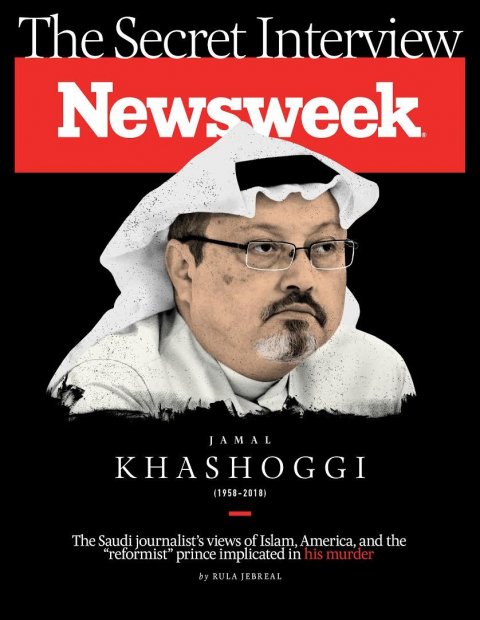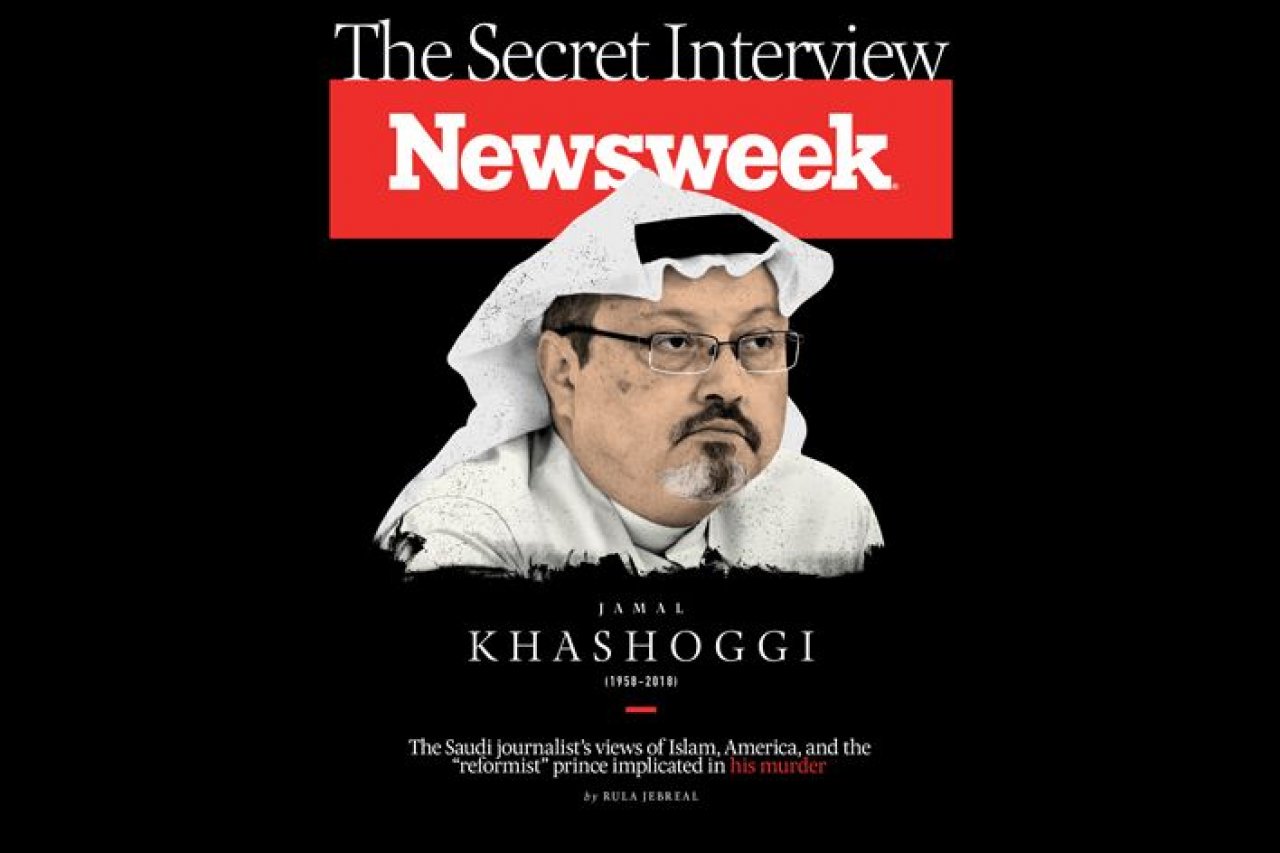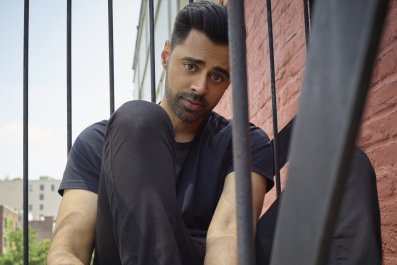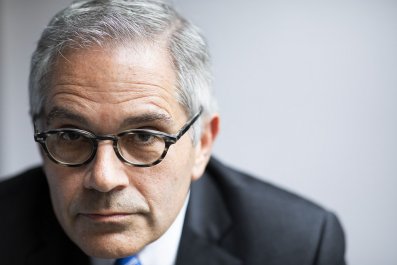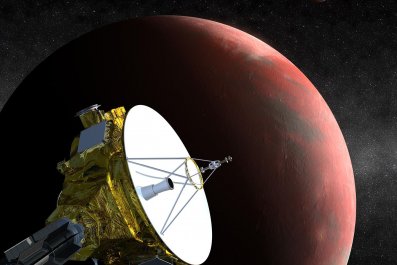Jamal Khashoggi told me he feared for his life. I was reporting a cover story on Saudi Arabia for Newsweek and we were speaking confidentially: That's one reason I haven't allowed this transcript to be published until now. The other reason is I hoped against hope that he was still alive. Despite ample signs of the extreme brutality of Crown Prince Mohammed bin Salman and his regime, I could never have imagined we would so soon be reflecting on Jamal's death.
Jamal was calm and deliberate as we spoke in great detail about Saudi Arabia's future and its recent past. "I don't see myself as an opposition," he said. He wanted only reform; he wanted "a better Saudi Arabia." He was almost mournful as he confessed how he had tried, in vain, to advise the young crown prince, known as MBS, to choose a different path and open up Saudi civil society. He maintained a sliver of hope that MBS, despite being "an old-fashioned tribal leader," could yet be steered toward reason. But he spoke frankly to me about the "thuggish" men around the crown prince. "You challenge them, you might end up in prison," he said.
As someone who had been close to the Saudi royal court for decades, Jamal instinctively understood the limits of reform. He has been described as a dissident in the weeks following his disappearance. But until 18 months ago, he had been loyal to the official Saudi line on every major issue, from Yemen to Syria to state-sanctioned sectarianism inside the kingdom. Such loyalty did not spare him the repugnant fate—according to Turkish officials—of being tortured to death and dismembered in a Saudi consulate.
In his final Al-Hayat column, Jamal was calling for political pluralism, at a time when MBS was preparing to tour the West, boasting about his "reforms" and posing as a young liberator. Jamal wrote that the word "extremism" had been weaponized by the Saudi regime to criminalize dissent. He arguably embraced the promise of the Arab Spring six years too late—by then, Saudi Arabia and its allies had succeeded in restoring a brutal authoritarian order in Egypt, Bahrain and elsewhere. Still, when Jamal added his voice to those calling for greater freedom and democracy, his words shook the Saudi regime.
It's beyond irony that Saudi Arabia, whose chief exports are oil and extremism, is afforded the right in Washington to inform our government which democratic movements across the Arab world should be regarded as worthy allies or official enemies. Our addiction to oil, as well as to the tens of billions in annual orders by the largest customer of the U.S. arms industry, has led us to denial of the obvious.
For decades, we've refused to listen to those inside the kingdom who have been the regime's victims—lawyers, liberal intellectuals, Shiite activists, women's rights campaigners, journalists. Jamal saw through the hype when many in Washington were willing to buy the fable the young prince was selling.
After the execution in cold blood of a world-renowned Washington Post columnist for the crime of having an opinion, defense of the regime responsible is still permissible in polite society in the U.S. Canceling a few appearances or even a few defense contracts is not enough. It's time for the U.S. Treasury to place wide-ranging sanctions on the kingdom. Playtime is over for the crown prince of public relations. It's time for MBS to go. But not only MBS: It's time to end the whole system of monarchic despotism of which he has been the most extreme symptom.
When asked if the international community could exert pressure on the crown prince, and protect the Saudi people from their ruthless leader, Jamal replied, "That is our only hope." I hope that everyone hears him now.
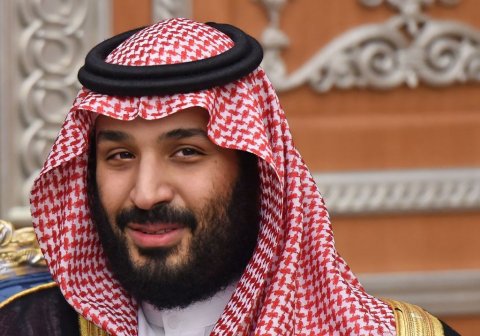
A Conversation with Jamal Khashoggi
I'm looking to understand the reforms that Crown Prince Mohammed bin Salman is claiming to lead. Is he reforming Islam itself? I heard that the archbishop of Canterbury (in a private conversation with MBS when he visited the U.K.) asked, "If you really want to be seen as a reformist, why don't you allow minorities to open their places of worship… like a Christian church or something?"
And MBS's answer was, "I could never allow that. This is the holy site of Islam, and it should stay as such."
So this is a contradiction with the idea that there is no Wahhabism [the uncompromising version of Islam], because in historical Islam, we know that there were worship places for others. Jews were allowed to worship; Christians were allowed to worship.
This is the same language of the past…. You have to choose. I'll open a cinema, or I allow Muslims to visit shrines. Most probably, the mufti would say, "OK, the cinema." Visiting of shrines and other Sufi practices—they come top of the list of the Wahhabi do and don't.
[With] Mohammed bin Salman, it is Wahhabi reformation, not Islam reformation. This is important. You have to distinguish between both, OK?
Is he really doing Wahhabi reformation— this is the question— or just cosmetic reformation?
No, he is. To put aside the concept of the religious police, that is reformation. That is important. I'm sure the hardcore Wahhabis are not happy with that. The cinema, the entertainment, the music, the veil of the woman... So he is addressing the issues that relate to the people, the social level of the people.
The judiciary is a significant reformation, and he could benefit from that. The society, trade would benefit from that. So those two things are important—the diversity of school of thought of Islam and the judiciary. If he does those two, I will hold him a reformer.
So if he reformed the judiciary and the school of thought, meaning diversity...
Diversity that Islam is a diverse religion. That will be important. The core principle of Wahhabism is anti-diverse. The thing with the Wahhabi is that they claim to be the owner, the sole owner of the truth. That's what makes the Wahhabi at odds with everybody else.
I understand it's important for young people—especially women—and he is popular among women because of the veil, the cinema, the music, the freedom that they are gaining after a long time of oppression. However, I care about real judiciary reforms that can allow women to be independent from male guardianship laws, which I find are based only on religious interpretation and have nothing to do with actually Islamic laws, which granted women the right to marry for themselves and do other things.
Rula, don't minimize the issue of judicial reform to women only, even though it is important…. Since the time of King Abdulaziz, they have refused codifying the laws. And they think codifying the laws is secular…. It is haram…. This is what I mean by reform, by true reform of the judiciary, is to codify the law, introduce due process in the court system and make judges [obey]—what is the word?—a codified law…. This is the reform that is needed.
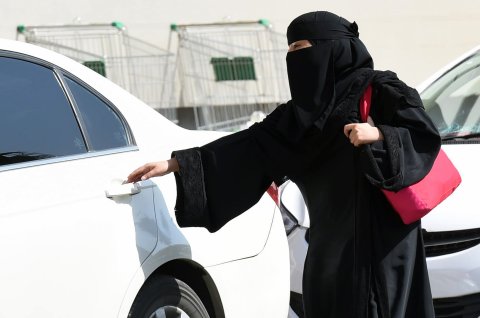
When MBS arrested all of those princes and others and put them at the Ritz-Carlton—I understand when somebody's this corrupt, he needs to be arrested. However, there was no due process, no evidence, no transparency. So if he really wants to be a reformist, why not bring evidence to the public? Why not bring transparency where you have really introduced the rule of law and due process? The people will be on his side if he would do that.
I don't think that is in his—he doesn't see that. He doesn't see the need for that. He is still very much… Deep inside him, he is an old-fashioned tribal leader. Look at the Kuwaiti judiciary, which is like a Gulf state; the society is very much close to the Saudi society. But the Kuwaiti judiciary is way more advanced than the Saudi judiciary, way more transparent than the Saudi judiciary.
Why does MBS not see that part of reform? Because it will limit his authoritarian rule, and he doesn't want that. He doesn't see the need for that. So sometimes I feel that...he wants to enjoy the fruits of First World modernity and Silicon Valley and cinemas and everything, but at the same time he wants also to rule like how his grandfather ruled Saudi Arabia.
That doesn't work. You can't have it both ways.
He wants to have it both ways.
This is what I'm trying to understand: Can you have it both ways?
First of all, there is no political movement in Saudi Arabia that could pressure him, number one. And the world is happy with him. Do you see anybody in America except for Bernie Sanders who is calling for putting pressure on MBS? I only saw Bernie Sanders, but no one else.
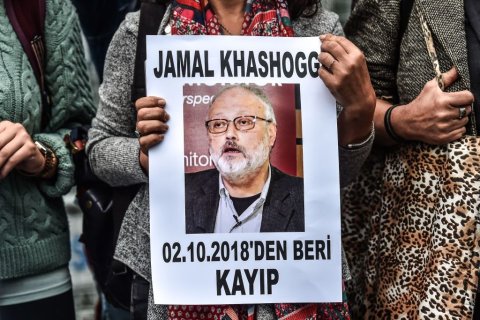
I want to remind you, Jamal, that in 2004 there was another man who was called a reformist, and that was Bashar al-Assad. And another man way before him, in '84, was called reformist, and that was Saddam Hussein—by the Americans, by the way. So history suggests that what Americans think one day they might change in five years' time or ten years' time. I wouldn't rely on American perceptions.
Yes, you are right. But the Americans, why should they care about…the treatment of 150 or 400 Saudis at the Ritz-Carlton? I am sure the Americans are not going to apply pressure on MBS [unless] a true crisis happens in Saudi Arabia.
Or in America, similar to 9/11.
Yes, or something like that. That will make Saudi Arabia important to them again.
Americans in this moment, with President Donald Trump, [may not care]. But America changes very fast, especially with young people, who are very attentive to what kind of policies we're conducting. You will see that there will be different approach, especially if MBS's policies backfire somewhere, directly or indirectly. Are Americans aware of who this guy is? Is it the right guy to back totally?
Yes, exactly... I see how it will go wrong. He is very much a believer in himself. He doesn't believe in anybody else. He doesn't check. He doesn't have proper advisers, and he is moving toward a Saudi Arabia according to him, a Saudi Arabia according to Mohammed bin Salman only.
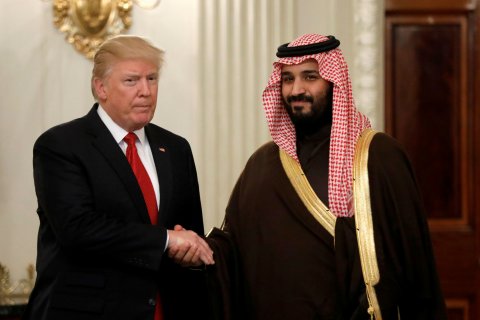
I have a question for you. If MBS would ask you to go and advise him—I understand, after what you wrote, it would be hard for him [to ask], but if he really stepped up and asked you to advise him, so he can understand the value of real reforms and transparency—would you accept that?
I will accept that, of course. Because that is what I want: I want a better Saudi Arabia. I don't see myself as an opposition. I'm not calling for the overthrow of the regime, because I know it's not possible and is too risky, and there is no one to overthrow the regime. I'm just calling for reform of the regime.
I will tell him to stop planning for those white elephant projects and look at the poor areas of Jeddah and Riyadh, and look at the poor people. Because those poor people, they want jobs, they want a better life, and they don't have it. And they will be the people—you're responsible for their interests, and they are the people who will move against you or who will come out into the streets if you fail them…. Look at the poor areas. Look at the economy…. Change the Saudi society into a productive society. And my second advice: Stop fighting historical ways of changing the Middle East. The Arab Spring is a true phenomenon. Embrace Arab Spring, embrace the aspiration for freedom of the people of Egypt, Syria and Yemen.
You are asking simply for reforms, exactly like many people who are in prison today. They're asking for political reform. They are still in jail, and you are in exile. Isn't that an indication that he really doesn't believe in the kind of reforms that he is advocating?
He believes in his reform.
So, the strongman mentality.
His mentality is prevailing today in most of the Middle East. That's how [Egyptian leader Abdel Fattah] el-Sisi looks at his people. That's how [Syria's] Assad looks at his people. That's how many Arab leaders look at their people, except for the king of Jordan, the king of Morocco.
MBS came to New York and Washington, D.C., and he said he would recognize the state of Israel somehow. But then, when he was in London, some people suggested to him, advised him, to maybe have an off-the-record meeting with the Jewish community, and he said it's too risky. If you believe in recognizing Israel, why don't you take it all the way through? What is he concerned about?
Saudi Arabia made the Arab [League] summit and called it the "Jerusalem summit" suddenly. Why did he do that? I think it is a reaction to the anger throughout the Arab world at Saudi Arabia. Saudi Arabia [is seen as] giving in to the Israelis, to the Jewish lobbies, here and there, and maybe also Saudi Arabia begins to [worry] that Trump cannot deliver to them what they were hoping for. So they retracted a little bit and said, "Oh, we are still supportive of Palestine."
Like he moved from imprisoning [Lebanese Prime Minister] Saad al-Hariri to embracing al-Hariri. Very inconsistent.
Yes, that was incredible to see, from imprisoning Hariri to embracing him in a restaurant in Paris and tweeting that picture. It was fascinating to see that juxtaposition within two, three months.
[French President Emmanuel] Macron became heavy on him about Hariri, and that's when MBS realized, "Oh, I better not. Hariri has good friends in the French government." And he, Macron, made a point in the press conference, that al-Hariri was invited to join them in a meeting by MBS. Why did he do that? He wanted to tell Macron that, look, I am good with Hariri.
لا تعليق pic.twitter.com/KbXMcJlw8K
— Saad Hariri (@saadhariri) April 9, 2018
So when there is a pushback from the international community, he can back off.
He can back off, of course, yes.
So the balance and checks that the Saudis are not capable of doing, the international community can somehow exert.
That is our only hope, yes.
Especially the Americans, the Europeans, can exercise that kind of check on him.
Very much. And if the World Bank, for example, warns MBS of wasting his money on megaprojects, he might back off and stop those silly made-up projects. But we, the people of Saudi Arabia, we don't have the power or the influence to say, "Your highness, please don't waste our billions of dollars in those megaprojects."
He seems desperately in need of cash. Their reforms seem to be oriented toward creating cash, so the cinemas they opened are a cash machine. These are reforms that will allow some kind of revenues in the system. So, yes, he opens the cinema, but basically it's a cash operation.
I think he believes in Saudi Inc. He likes the Dubai model. The government of Dubai, as much as it is a government, it is a corporation. So it makes money out of the expats who are living in Dubai [with] their drinking, their cinemas, etc. He likes that model, and he is importing this model to Saudi Arabia. What goes wrong with this model is that Dubai is a city state, while Saudi Arabia is a country. And while he is building Saudi Inc., where some Saudis will be spending money in it and the money will go to the government, there will be millions of other Saudis who are too poor to be part of this new economy. They don't have jobs. He needs to see that.
Can you create stability when you alienated the business elite, the security establishment—especially those who are close to Mohammed bin Nayef and others and his cousins who are very upset? Can you rule when your constituency is unhappy? Can you create a stable reformation?
There is a leader who is running a country that is much poorer than Saudi Arabia and has more of a critical dissent history. Sisi in Egypt, right? Today, no one can plan a revolution in Egypt. So MBS, who has more money, who has more support, who has a smaller population... MBS can rule Saudi Arabia for years, unchallenged. [But] if he goes and spends those half-a-trillion dollars on his megaproject, if 10 years later those bigger projects do not bring the return on investment, then he will be in trouble.
That's what will determine his legacy?
Yes, it is about how these projects will go. If they succeed, he will become the second greatest leader of Saudi Arabia. But again, he has to build those projects, and he has to get millions of Saudis working.
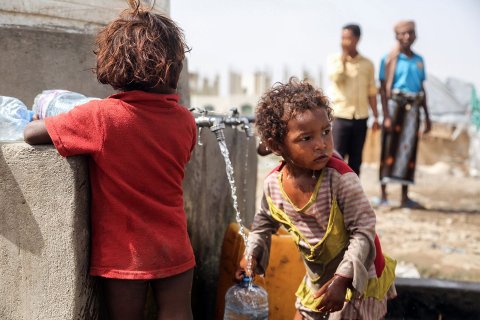
Saudi Arabia is spending millions of dollars in Yemen on this war that seems unwinnable. The blockade with Qatar has its costs—a lot of the things that the Qataris used to buy from Saudi Arabia, now they buy them elsewhere. All of these policies are not profitable, at least economically, let alone the political side. What is the logic? If he wants to turn around the economy and create jobs for millions of Saudis, why lose money in a project that there is no way you can win?
He is right to be worried about Iranian presence in Yemen. And he wants to drive them, the Iranians, out of Yemen. But at the same time, he is also suspicious of his natural allies in Yemen, the Islamists. So he wants a victory in Yemen that will eliminate the Houthi. And it seems he cannot do that. Of course, it is impossible to do that.... And because it's a one-man rule, no one can tell him, "Your highness, this policy is wrong. You have to find an alternative solution for Yemen." He is stuck with it. This is also a personal vendetta. He is the one who started this war. And this crisis with Qatar has become a very personal crisis.
What is the rationale in the Qatar crisis?
There is an essential marker in MBS strategies.... As much as he is worried of Iran, he is worried of political Islam, of the Muslim Brotherhood, of the forces of the Arab Spring. He sees both as a threat to him. Qatar is seen as...the lifeline to Arab Spring and political Islam. And he wants Qataris to detach from their support of the Arab Spring and political Islam in the form of Al Jazeera, in the form of financing. That's basically what he wants. If the Qataris become another Bahrain, disassociate totally from political Islam and Arab Spring and turn against them, they will be welcomed into MBS's home.
He wants a client state?
Exactly. How the Qatari will become a client state is they agree to stop their support to forces of Arab Spring. MBS and MBZ [United Arab Emirates leader Mohammed bin Zayed], they think they have suffocated the forces of Arab Spring, and the only breathing space they have is in Qatar. So they want to shut this breathing space.
Arab Spring is an idea, and an idea needs a platform. And Qatar is still providing that platform. And really...it will be a major blow to voices of change in the Middle East, because voices of change have only Al Jazeera as a platform and as a pro-Qatar media outlet. [Losing that] will be a major win for MBS.
If he wants to embody the idea of reform, what is wrong with demanding freedom, social justice, jobs and food? I'm talking about yourself, myself and millions of Arabs who don't want Islamists but actually want a better Saudi Arabia.
If you have an opportunity to go to Saudi Arabia or to spend some time with some of the elite who are close to the government, they will tell you that the Arab people are ignorant. "Those people are ignorant. They don't know what is good for them"—number one. Number two, despite what we think of the Islamists, Islamists and democracy come together. Wherever there is democracy in any part of the Arab world, Islamists will emerge, even to be the winner of most of the vote or a good portion of the vote. And they will either be in government, or they will share government, like in Tunisia or Morocco. And he doesn't want that. He despises Islamists. That is why he is totally against Arab Spring, and he has now escalated a machinery, a PR machinery anti–Arab Spring. People, writers, television stations, news channels like Al Arabiya that constantly attack the idea of Arab Spring. He uses religion to attack the idea of revolution and the Arab Spring.
What do you mean by "he uses religion"?
He used a certain tinge of Salafism that bans people, administrations and opposing the ruler.
He used clerics who said nobody should oppose the ruler? Who say it's haram to challenge the rulers?
Yes.
So they basically say they hate Islamists, but they are willing to use the Salafis to fight the forces of the Arab Spring and the ideas of the Arab Spring, whether verbally or violently, in Yemen and elsewhere?
Yes. Because it is [his] goal to counter political Islam.
Do you have any hope that the reforms could succeed despite the skepticism...to the point where you would be proud to go back and live in Saudi Arabia and feel safe?
Even though what he is doing, I could go along and call it reform, it will to be more precise to see it as normalization. It's not reform yet. He only opened the door for people who were locked out—people of entertainment, women, to be allowed to come out from the quarter where they were kept for many years and come out and join the whole community back again. But now since the doors are open and we are having women and entertainment and less religion in our community, now we have to do reform. The reform has not begun yet in Saudi Arabia. The actual reform is to have a functioning economy.
And the economy today for Saudi Arabia is in recession. I just had lunch with a Saudi Arabian businessman who is really suffering.
What I haven't seen—like here in America, if you are running to be the mayor of Miami, as much as you will meet rich people for fundraising, you will spend some time in poorer areas in Miami. Right? Talking to the poor people to see their problems... I don't see MBS spending time there. I haven't seen a single picture of him in a poor area in Riyadh.
We've seen a lot of pictures with the elite.
With the elite yes, that's where he is. He still doesn't see the people. When he sees the people, that's when the actual reform will start.
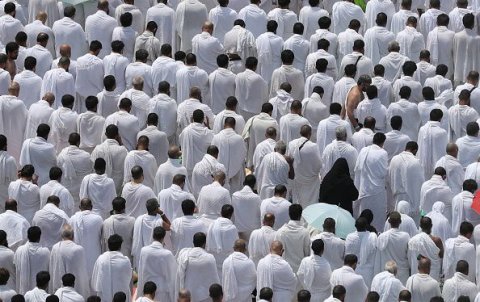
People come from all over the world to the Hajj. The past two or three years, we saw the infrastructure crumbling, we saw the accidents… It didn't reflect well on the organizational capacity. The Hajj is a very significant symbol. It is the one thing that Saudi Arabia has above the whole Islamic world. The fact that they couldn't get their act together logistically… Is MBS paying attention?
I think we still have a problem with the functioning of the government, a proper functioning of the government. It is easier for Saudi Arabia always to build concrete buildings because usually those buildings will be built by contractors, and the contractor will do their job. They do have a problem in maintaining and running the buildings.
I have a very silly description of that: Here in America, you go into an airport, [and it might be a] very busy bathroom, but it will always be clean or relatively clean, and there will be toilet paper there. In Saudi Arabia, we could build a fancy bathroom, but after two years of operation water will start leaking, and there will be no toilet paper. It is maintenance. It is the functioning operation of the school or the hospitals. Saudi Arabia spends good money on health, on education, but the operation is not efficient.
Schools are not clean.... Most of the children in Saudi Arabia lack sewage system. This is the irony of Saudi Arabia that we are talking about.
He wants to build new cities. But who will live there if the poor already can't afford to live?
Just the elite. The elite who can afford.
Is it enough to consolidate your power if the elite only is served?
Unfortunately, this elite in Egypt, for example, they have gated communities. People—middle class and rich people in Egypt live comfortably in those gated communities.
The fact he's not willing to listen to his closest relatives and willing to lock them up because they don't agree with him... These are signs we've seen before. It suggests a very terrible tendency.
There are two things you mentioned here. Yes, he does not have political advisers except Turki al al-Sheik and Saoud al-Qahtani. He doesn't have high advisers.
And the story about the mother [being placed under house arrest]—read it again, you will find something very interesting. Fourteen intelligence sources confirm the story. Who are they? These are Americans. Americans are leaking the story. CIA is leaking the story. Why are they doing that? I think there are people in the CIA who are unhappy.
About the two advisers, Saoud al-Qahtani and Turki al-Sheikh...
They are very thuggish. People fear them. [If] you challenge them, you might end up in prison, and that has happened. Turki al-Sheikh is in charge of sport, and it is rumored that he has a few billions within his disposal to spend on sport and keeping young people busy. Turki...was in the police force, and I don't know how he came to be so close to MBS, but he is very close to him right now.
Al-Qahtani was the media officer in the royal court in the time of Khalid…King Abdullah's time. He was a friend of mine and I knew him very well. He was the liaison between the royal court and the media at my time. Now he has become the most important man in media. He is the one who leads the Saudi control arm…and he is the one who is controlling the PR and media.
Sheikh said, "Westerners come here, and we make them wait two hours, and they kiss our feet." Seemed delusional. He was arrogant, and the language was as if it belonged to a different century.
I would have advised you to go to Saudi Arabia and meet with them, and see and hear that for yourself.
I'm not sure I could go there and come out with my skin.
